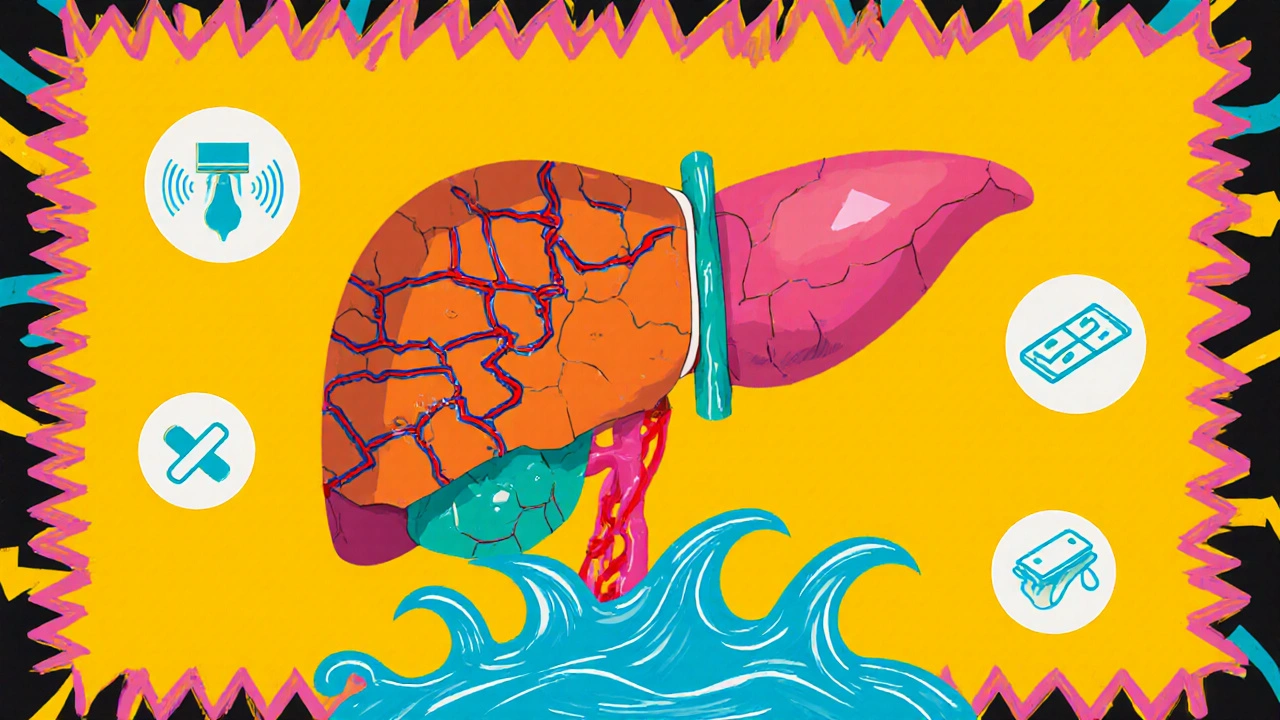Liver Cirrhosis Management: Treatments, Lifestyle Changes, and What Works
When the liver becomes scarred from long-term damage, it’s called liver cirrhosis, a late-stage condition where healthy liver tissue is replaced by scar tissue, impairing function. Also known as cirrhosis of the liver, it doesn’t reverse—but with the right liver cirrhosis management, you can stop it from getting worse and avoid life-threatening complications. This isn’t just about taking pills. It’s about changing how you eat, drink, and live.
Alcoholic liver disease, damage caused by heavy drinking over years is one of the top causes of cirrhosis. But so is nonalcoholic fatty liver disease, fat buildup in the liver not linked to alcohol, often tied to obesity or diabetes. Both lead to the same end result: a liver that can’t filter toxins, make proteins, or store energy like it should. That’s why managing cirrhosis isn’t just about the liver—it’s about your whole body. Blood pressure, sugar levels, fluid retention, and even your gut health all play a role.
Stopping alcohol is the single most effective step if drinking is the cause. For those with fatty liver disease, losing even 5–10% of body weight can reduce scarring. Medications like diuretics help with swelling, beta-blockers lower pressure in liver veins, and antivirals treat hepatitis B or C if they’re the trigger. But no pill replaces clean eating, regular movement, and avoiding anything that stresses the liver—like unnecessary painkillers or unregulated supplements.
People with cirrhosis often end up in the hospital because of complications like internal bleeding, confusion from toxin buildup, or infections. That’s why regular checkups aren’t optional—they’re survival. Monitoring liver function, screening for liver cancer, and knowing when to call a doctor can make all the difference. It’s not about waiting for a crisis. It’s about staying ahead of it.
Below, you’ll find real, practical guides on how medications, diet, and daily habits impact liver cirrhosis management. Some posts cover specific drugs that help control symptoms. Others explain how to avoid dangerous interactions with other meds. You’ll also see how gut health, fluid balance, and even constipation can tie into liver function. These aren’t theory pieces—they’re tools for people living with this condition every day.
Chronic Liver Disease: Understanding Cirrhosis Complications and How to Manage Them
Cirrhosis is the advanced stage of chronic liver disease with serious complications like ascites, bleeding, and liver cancer. Learn how to recognize symptoms, manage risks, and improve survival through proven treatments and lifestyle changes.
© 2026. All rights reserved.

